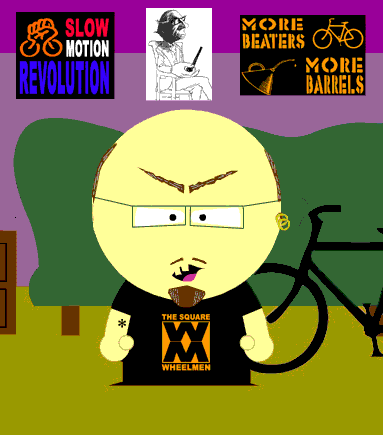The missing characters of page one
Twenty-five years ago when I was in Chicago beginning my career, I used to go to the Billy Goat Tavern to drink like a reporter. The Billy Goat — half relic, half tourist trap — was under Michigan Avenue between The Tribune and The Sun-Times. It had laminated articles, half-forgotten bylines, and pictures of dead reporters tacked all over the walls. I could sit and imagine I was breathing the same air that had been inhaled by George Ade, Nelson Algren, Ben Hecht, Theodore Dreiser, Eugene Field and Mike Royko.The golden age of Chicago journalism was just then coming to an end, the long tradition of urban realists who had treated Chicago the way Dickens had treated London. Ade, Algren and the rest didn't make their names writing about the city's leading figures. They filled their columns with stories about the small-time grafters, hustlers, bar-stool philosophers and other eccentric specimens they found in the working-class neighborhoods where many of them grew up.
It's hard to imagine now, but in Chicago, even 20 years ago, the working class was portrayed more vividly in the newspapers than the upscale consumer class, and workers weren't depicted as members of the noble but oppressed proletariat — objects fit for genteel compassion. The old neighborhoods were portrayed uncondescendingly, as scrambling menageries, where aspirations of lace-curtain respectability competed with the hoodlum's ethic: where's mine?
Reporters who covered this turf expected venality and took a connoisseur's delight in tales of petty greed. Royko wrote a column about one of the city's deputy coroners who was charging a line of visitors $5 each for a peek at a dead gangster. A cop came across another coroner as he was huffing and puffing to get a ring off a fresh corpse.
"Whadya think you're doing?" the cop asked.
The coroner was caught red-handed, so he turned to the cop and said unblushingly, "O.K., you can have the wristwatch."
Chicago came to define itself according to the deranged but lovable characters it read about in the morning press. There never was a town so shaped by journalism, or a better place to practice the trade. And the underlying message of all these column inches was that human beings are selfish connivers, on the make in ways big and small, and since the powerful have the capacity to grab more than the powerless, they always have to be challenged and opposed.
Unlike the well-meaning goo-goos along the lakefront, the reporters didn't believe the poor were nobler than the rich, they just practiced graft on a smaller scale.
This week, I happened to stop in at the Billy Goat, which hasn't changed a bit though the world above it is transformed. No American city has progressed as much in the past two decades as Chicago. It's richer, cleaner, more livable, more honest though less colorful than it was. The social conditions that underlay the urban realist reporting of the old days no longer exist.
Chicago is no longer the city of broad shoulders but of cultural workers. The newspaper-devouring working class no longer exists. The old neighborhoods are not as cohesive (or insular). A Daley is still mayor, but the machine is gone.
There is no real working-class consciousness in popular culture today. The city is now shaped by the suburbs. Slats Grobnik has given way to legions of grown-up Ferris Buellers.
Most of all, there has been the great upscalization. In 1981, Royko moved from his bungalow near Milwaukee Avenue to a high-rise along the lakefront, and that was really the death-marker of the old style. America's cultural tone is no longer set by aspiring working-class novelists who grew up above a tavern. It's set by globally savvy college grads, who, even if they visit the Billy Goat from time to time, see the world from a different vantage point.
What's changed Chicago has also changed journalism. Now journalism is the subject of academic disciplines and panel discussions. Newspapers are more cosmopolitan but less picturesque. Journalists are less novelistic and rely more on studies, statistics and social science. Now even writing about poverty is done from the perspective of the affluent educated class.
It's not completely wrong to say I went into journalism because of the ghosts I thought I felt at the Billy Goat, but it turns out that I, a soft-drinking college grad, was part of the wave of cultural change that buried what was created there. We've progressed, for better and worse.
Labels: books, Chicago, history, new urbanism, Our Bike Mayor, pensées, serious shit, writing







0 Comments:
Post a Comment
<< Home